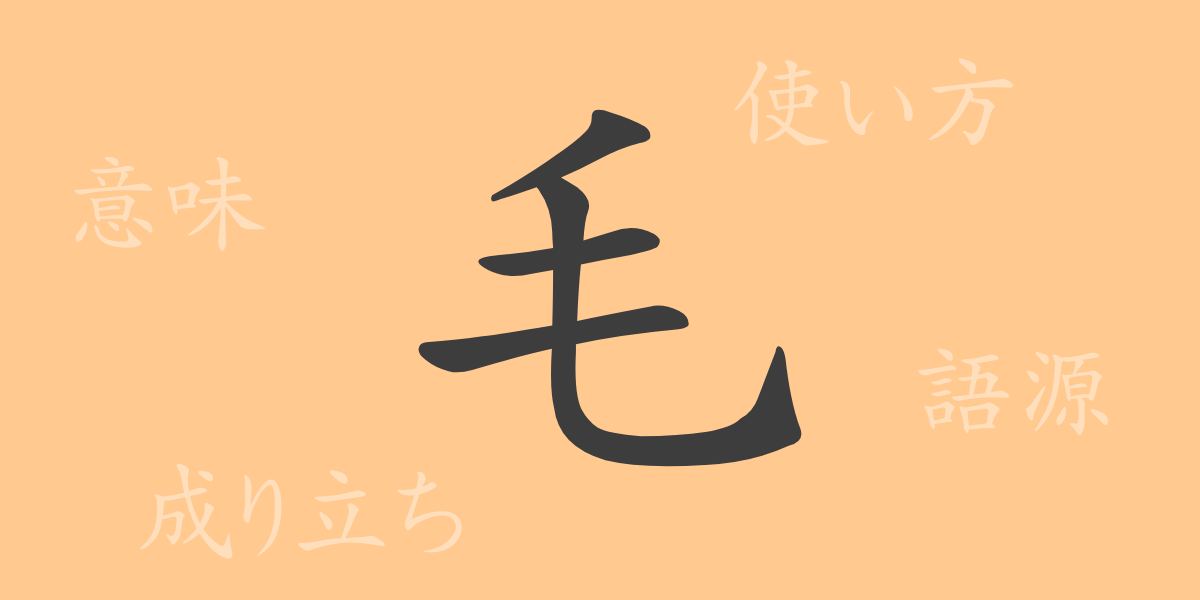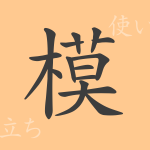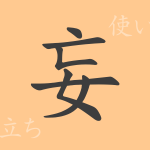The journey to explore the history and meaning hidden in each character is like venturing into a treasure trove of words. In this exploration, we focus on the character “毛” (け, ke), which is ubiquitous in our daily lives, and delve into its profound world. What kind of origin does the character “毛” (け, ke) have, and what meanings are embedded in it? Through this article, we will deeply explore the charm of the commonly used kanji “毛” (け, ke).
Origin of 毛 (け, ke)
The kanji “毛” (け, ke) has evolved from pictographs in ancient China. This character, representing animal fur, features fine dots at the top indicating hair, and a simplified form of “肌” (はだ, hada) meaning skin at the bottom. It depicts hair growing from the skin of animals, and the character itself is thought to mimic this shape. Over time, it has been simplified to its current form, yet its original design still lingers.
Meaning and Usage of 毛 (け, ke)
The character “毛” (け, ke) primarily refers to the “hair” of animals and humans. Additionally, it has metaphorical uses and various applications in different contexts. For instance, “毛が生える” (けがはえる, ke ga haeru) not only means hair growing but can also signify gaining experience. It is also used in words related to everyday items such as “毛穴” (けあな, ke ana – pores), “毛糸” (けいと, ke ito – yarn), and “無駄毛” (むだげ, muda ge – unwanted hair).
Reading, Stroke Count, and Radical of 毛 (け, ke)
The kanji “毛” (け, ke) is widely used in the Japanese language in terms of its readings and structure.
- Readings: On’yomi (音読み) is “モウ” (もう, mou), Kun’yomi (訓読み) is “け” (け, ke)
- Stroke Count: 4 strokes
- Radical: 毛部 (けへん, kehen)
Idioms, Proverbs, and Expressions Using 毛 (け, ke)
There are numerous idioms, proverbs, and expressions that include “毛” (け, ke), each illustrating the richness of the Japanese language. For example, “毛頭” (もうとう, moutou) means “not at all,” as in “毛頭気にしない” (もうとうきにしない, moutou kini shinai – not concerned at all). “一毛打尽” (いちもうだじん, ichimou dajin) means to thoroughly do something, and “毛嫌い” (けぎらい, kegi rai) means to dislike something without reason. Thus, “毛” (け, ke) is used in various expressions, enriching the expressiveness of Japanese.
Summary of 毛 (け, ke)
As revealed in this exploration, “毛” (け, ke) is not just a character representing a part of the body but also a mirror reflecting our emotions, actions, and culture through language. From its origin to its diverse uses in daily life and idioms, “毛” (け, ke) plays a significant role in the Japanese language. We hope this article provides readers with an opportunity to discover a new facet of “毛” (け, ke).

























